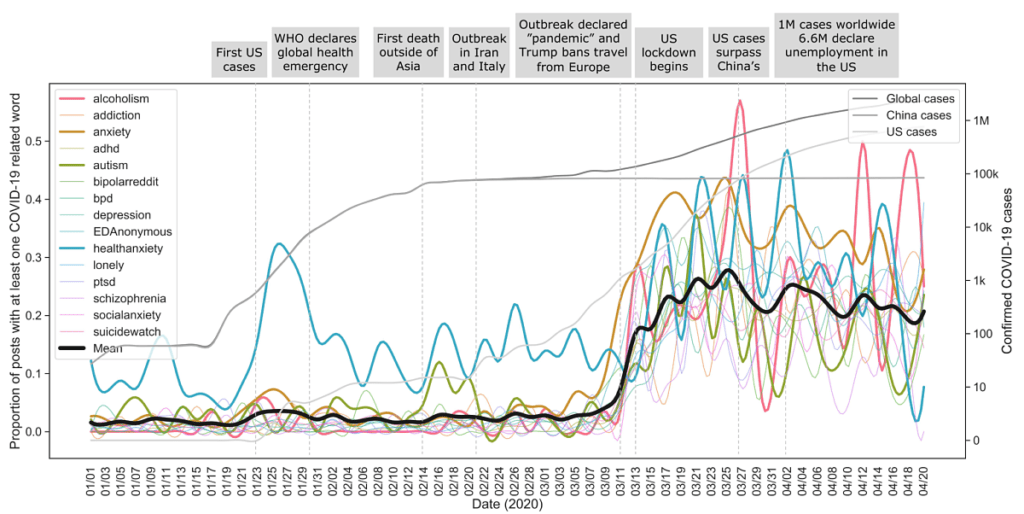Posts Tagged ‘pandemic’
On uncertainty, stress, emotion regulation, and carpe diem
Ever since it began, the pandemic has been a crash course in uncertainty. Safe behaviors, school openings, vaccination timelines, the job market, new variants—these have all seemed to change on a weekly basis, threatening our sense of security and stability. Uncertainty is stressful and perhaps even harmful to our health, research suggests, and it can…
Read MoreUsing Reddit as a population-level “mental health tracker” during the COVID pandemic
Using machine learning to track the pandemic’s impact on mental health (MIT News): Dealing with a global pandemic has taken a toll on the mental health of millions of people. A team of MIT and Harvard University researchers has shown that they can measure those effects by analyzing the language that people use to express their…
Read MoreStudy: A combined teaching + app gratitude program helps adolescents address anxiety and improve mental health
Students and educators have started a new school year in the midst of a pandemic, an economic crisis, a reckoning with racial injustice, and a divisive political climate. Everyone’s mental health is at risk, and schools are searching for ways to support young people’s well-being in addition to their academic learning.
Read MoreStudy: Meditation practice, both formal and informal, helps develop equanimity over time
We are living through a time of uncertainty, a sky-high pile of question marks. It has become increasingly difficult to make plans because the state of our world today is so volatile due to the coronavirus pandemic. Some people are adapting to their homes becoming their offices indefinitely, or in danger of losing their jobs,…
Read MoreMental health for digital natives in the covid era: Shouldn’t remote counselling be the first line of engagement & treatment?
The benefits of remote consultation for mental health treatment (Health Europa): Thorbjorg Vigfusdóttir, a cognitive psychologist by training, spent 12 years as a politician in her native Iceland with the goal of directing her knowledge on the development of the brain into education and public policy. After leaving politics to form a company providing remote…
Read MoreReading science fiction can help children build critical thinking and resilience
Young people who are hooked on watching fantasy or reading science fiction may be on to something. Contrary to a common misperception that reading this genre is an unworthy practice, reading science fiction and fantasy may help young people cope, especially with the stress and anxiety of living through the COVID-19 pandemic. I am a…
Read More





